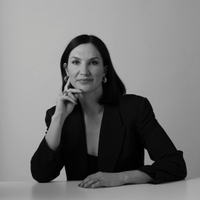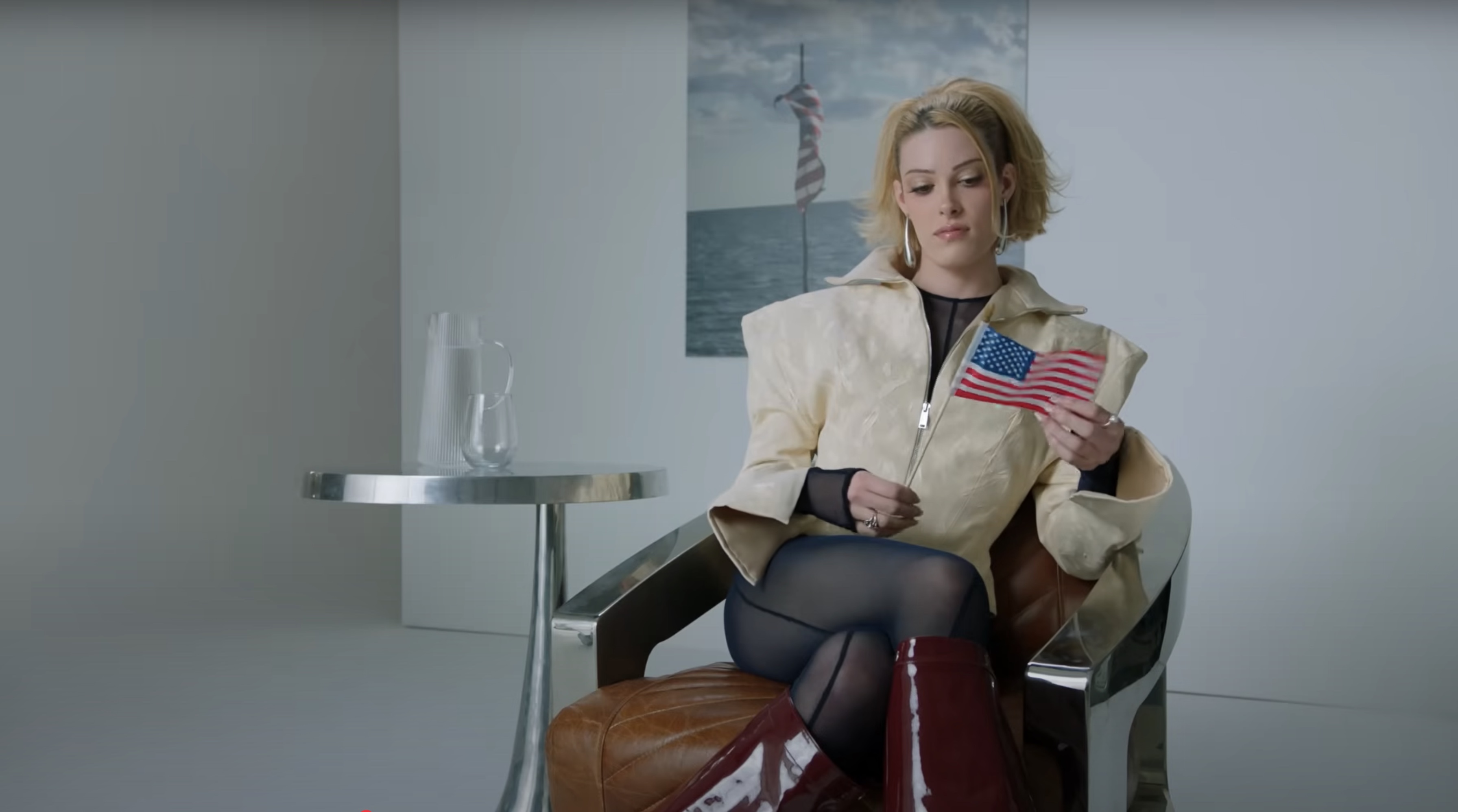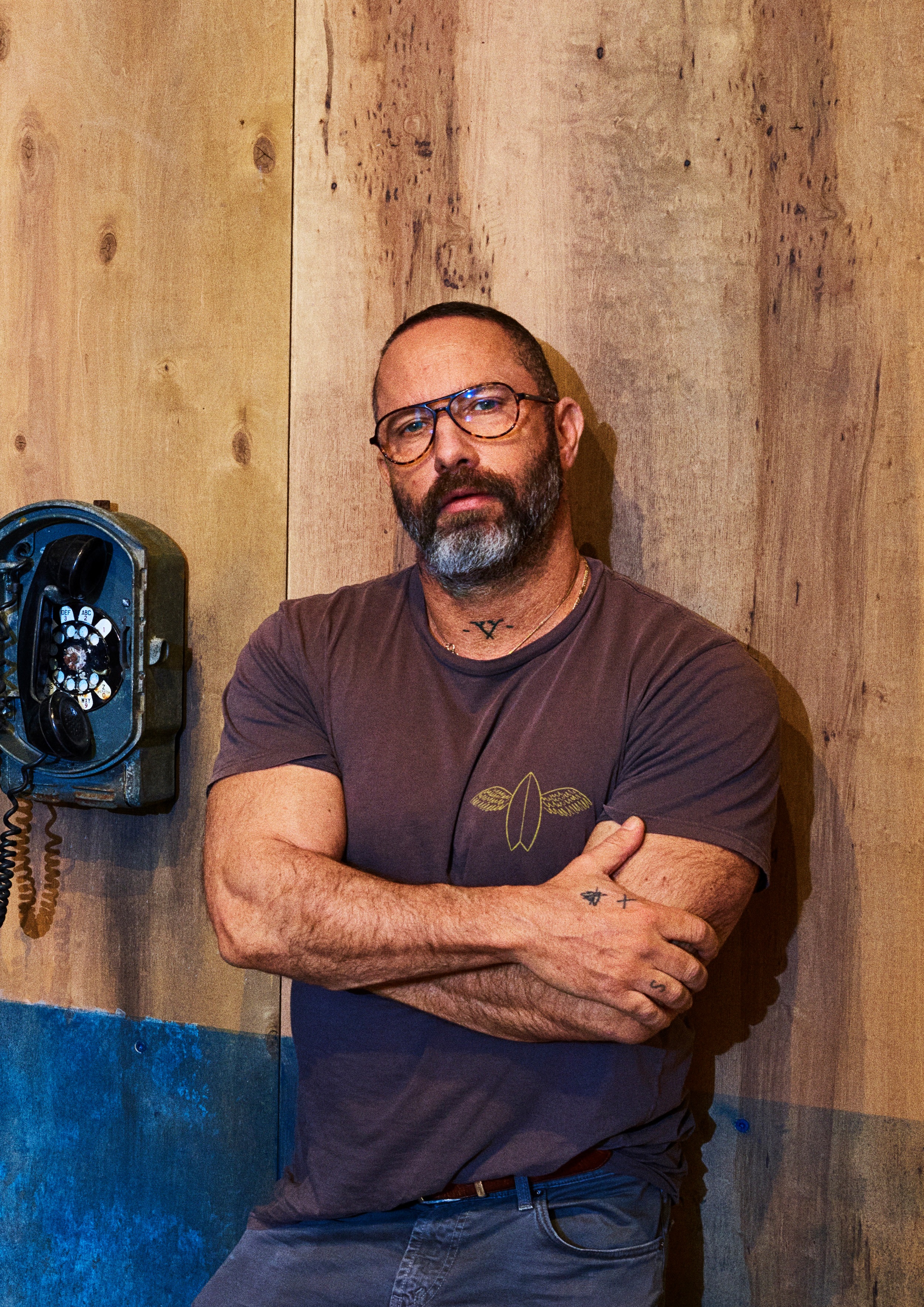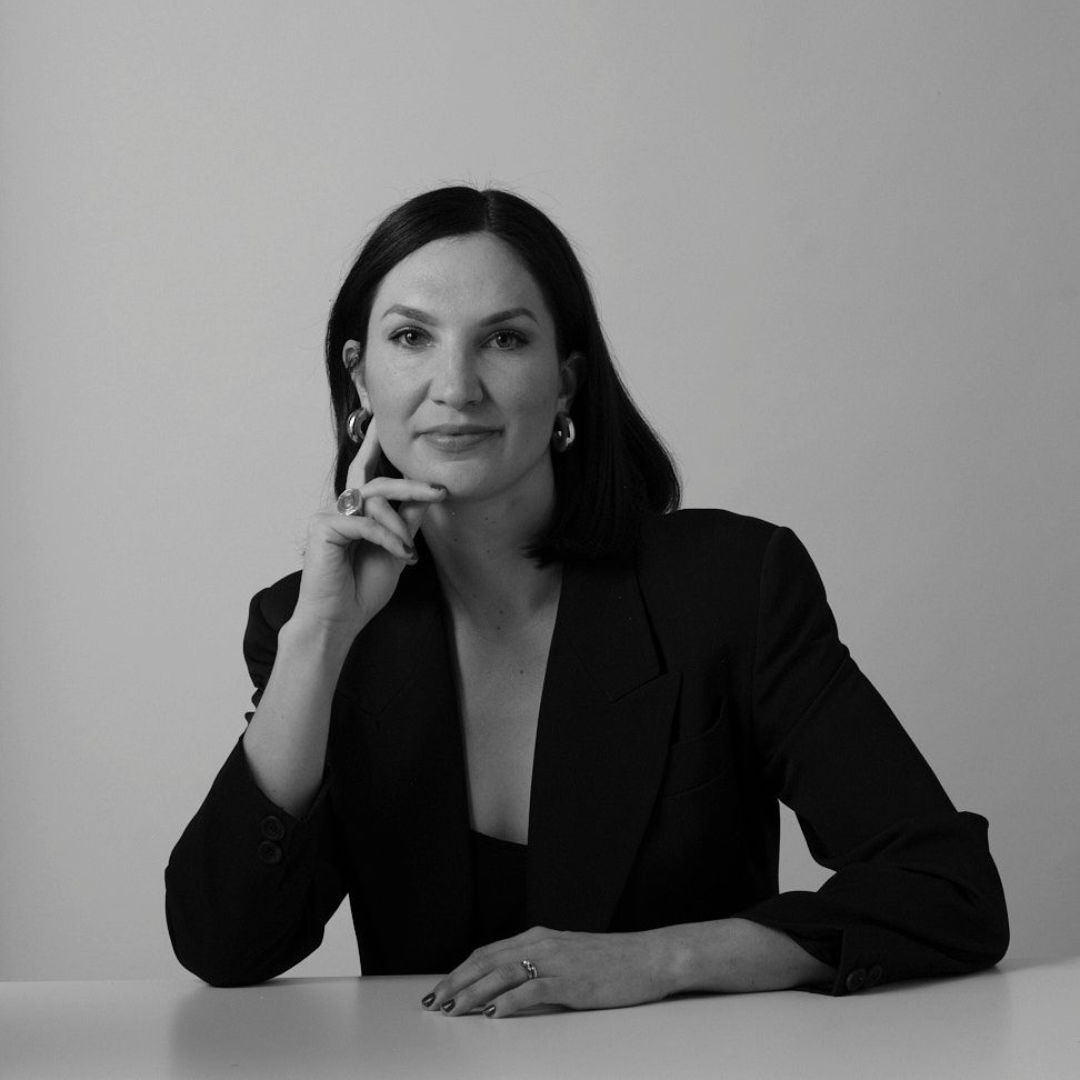Why Alexis Bittar wants you to display the American flag again
In ‘Reclaim the Flag,’ a new short film, the accessories designer makes the case for being proud to be an American


Receive our daily digest of inspiration, escapism and design stories from around the world direct to your inbox.
You are now subscribed
Your newsletter sign-up was successful
Want to add more newsletters?

Daily (Mon-Sun)
Daily Digest
Sign up for global news and reviews, a Wallpaper* take on architecture, design, art & culture, fashion & beauty, travel, tech, watches & jewellery and more.

Monthly, coming soon
The Rundown
A design-minded take on the world of style from Wallpaper* fashion features editor Jack Moss, from global runway shows to insider news and emerging trends.

Monthly, coming soon
The Design File
A closer look at the people and places shaping design, from inspiring interiors to exceptional products, in an expert edit by Wallpaper* global design director Hugo Macdonald.
The American flag is ubiquitous in the United States, even when not fluttering in view. It’s in our folklore, with Betsy Ross. It’s in our public classrooms, with school kids everywhere rising to recite the Pledge of Allegiance. They’re fixtures on porches, lapels, and boxer briefs; at swearings-in, football games and naturalisation ceremonies. The American flag is everywhere and, so we’re told, for everyone.
Recent political divides, though, have chipped away at that promise. Since President Donald Trump – who incidentally was born on Flag Day – first took office in 2017, the flag has taken on new meaning, one that’s become increasingly synonymous with MAGA ideology and a narrow interpretation of ‘American values.’
Brooklyn-born accessories designer Alexis Bittar had been observing these shifts. As a gay man with three young children, he even began to consider leaving the country. ‘It occurred to me that I can either be critiquing the country or fighting for it,’ he tells Wallpaper*. ‘I decided to fight for it.’

Alexis Bittar
For Bittar, who founded his eponymous label 35 years ago, resistance took the form of a short film – and the American flag felt like the perfect place to start. Working alongside Academy Award-winning producer Bruce Cohen, Bittar created and directed ‘Reclaim the Flag,’ a short documentary released last month that examines the LGBTQ+’s relationship with the Stars and Stripes.
Over the course of the 30-minute film, Bittar and Cohen asked the participants – who include everyone from Emmy-winning actor and screenwriter Lena Waithe to drag royalty Symone – too share their feelings about the flag and the experience of being queer in America. The frank, often raw, interviews reveal a range of feelings – rejection, pride, sadness, and, above all, hope.
Bittar wants the documentary to be both a wakeup call and a rallying cry – not just for the queer community, but for the left more broadly. He’s also confident that, one day soon, the American flag will unite more than it will divide. ‘For the first time, I really felt like I'm American,’ Bittar says.
Read our conversation below.
Receive our daily digest of inspiration, escapism and design stories from around the world direct to your inbox.
Wallpaper*: We have an obsession with the flag, here in America. In grade school, I remember learning about how you treat the flag, how you’re never supposed to let it touch the ground; you fold it in a certain way. It has this strange talismanic power.
Alexis Bittar: I think for a lot of people, the flag was in the background. I don't think people really thought about it that much. Its symbolism shifted gradually and suddenly at the same time. It became a symbol of anger and retribution. In a way it felt like it was bringing us further apart than uniting.
W*: I'm a Millennial and remember how, post 9/11, there was a surge of patriotism, and the flag was ubiquitous. It’s interesting how, 20 years since, how that has shifted.
AB: I was thinking about that too, because 9/11 was the first time that the flag was, in my lifetime, being used other than at, like, a parade, or some other national moment. I grew up in New York City, and I'm half Syrian and half Irish. So I think growing up Arabic, I'm always kind of hyper-aware of feeling like the ‘other’ in America.
W*: What made you pursue a film on this topic?
AB: I was in Tokyo in early February with my family, and I had successfully turned the news off between when Trump first came into power until then. I began looking at the news and I just felt kind of fearful. I’m gay, I’m married, and I have three kids – they’re my centre. My partner and I were discussing, in regards to Project 2025, at what point would we feel like we would need to leave the country?
But after travelling around the world, I'm very keenly aware that there's not a lot of gay families. I began thinking about this. It occurred to me that I can either be critiquing the country or fighting for it, and I decided to fight for it. For the first time ever, I felt like I'm American. I don't love everything about this country, but I believe we have to fight for the ideals of our country.
I wanted to open up a conversation and a narrative around the American flag, but through an LGBTQ lens. When you talk about people from that community, there's lots of reasons why people have felt that America did not embrace them.if you just talk about the flag and what it's supposed to mean and what it represents, there's something very powerful about that,
I wanted to open up a conversation and a narrative around the American flag, but through an LGBTQ lens
Alexis Bittar
W*: Had you ever made a film before?
AB: No, it's the first time.
W*: What was it about film as a format that compelled you?
AB: With my brand Alexis Bittar, I had been directing social media skits – I won a Webby for it. They were satires on fashion. I wrote a TV show based on these characters. I'm pretty organic by nature. When the idea for this documentary came about, I felt like it was my way of activism.
W*: Everyone in the documentary has a different take on what the flag means to them, yet there's a unifying thread. Can you talk about that?
AB: We asked everyone the same questions. The first was, what was it like growing up LGBTQ+ in the United States? I thought it was important to kind of go through that. Then the next was, how do you feel about America today? What does the United States flag symbolise to you? And lastly, how do we reclaim the flag?
I think everyone felt in deep sorrow about how they felt about the United States today. They're all strong people, strong personalities, and they're fighters. I think everyone did have this perspective, though, that they might feel deep unhappiness about where we are today, but there's a love for this country. And so I think there was a shared thought process, but everyone had a very specific experience.
W*: It's interesting that you chose the verb ‘reclaim’, because I wonder if many of your subjects ever felt that the flag was theirs to begin with.
AB: Most didn't. Most felt like it never really did represent them. But the word ‘reclaim’ was an important word for me, because I wanted it to be a little punk – I wanted it to feel like an action.
W*: One of the more evocative moves in the documentary is that you gave everyone a baby American flag to hold – it's so small, yet it's so powerful.
AB: None of them knew they were going to be given the flag. All of a sudden, they're really hit with these subconscious feelings about the flag, like saying the Pledge of Allegiance in school. A lot of the people had never really talked about the flag, ever.
The word ‘reclaim’ was an important word for me, because I wanted it to be a little punk.
Alexis Bittar
W*: One of my favourite moments – there were many in the film – was when Darren Walker [president of the Ford Foundation] quoted Langston Hughes, who said, ‘Let America be America again.’
AB: Langston Hughes says that he knew that America wasn't America, that it will never be America for him. And he’s also saying – or the way I interpret it – is that his hope is that one day it will be.
My hope in making this documentary is that this will spark conversation and people will think and move towards not only their own independent sense of fighting for the country, but also towards unity.
I think putting a flag up is a great way to start. We're actually now working with a social impact organisation and building a kind of a broader platform to make this into a national movement.
This interview has been edited and condensed for length and clarity.

Anna Fixsen is a Brooklyn-based editor and journalist with 13 years of experience reporting on architecture, design, and the way we live. Before joining the Wallpaper* team as the US Editor, she was the Deputy Digital Editor of ELLE DECOR, where she oversaw all aspects of the magazine’s digital footprint.